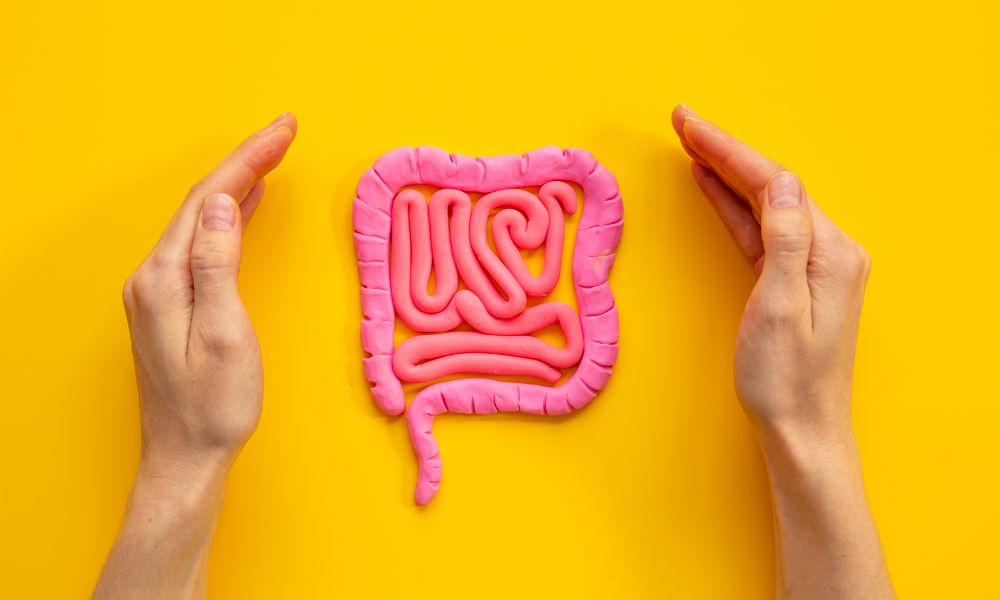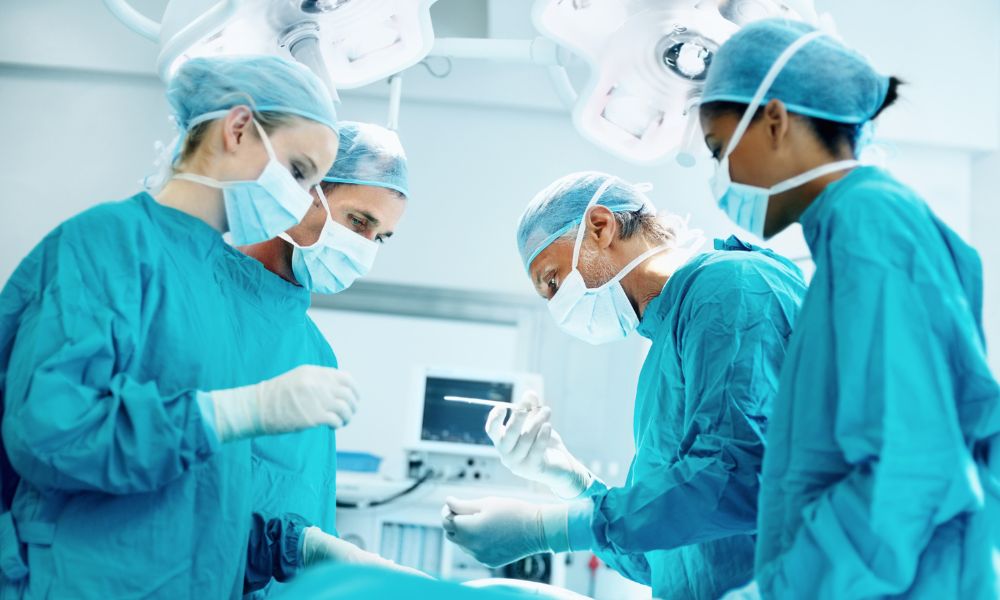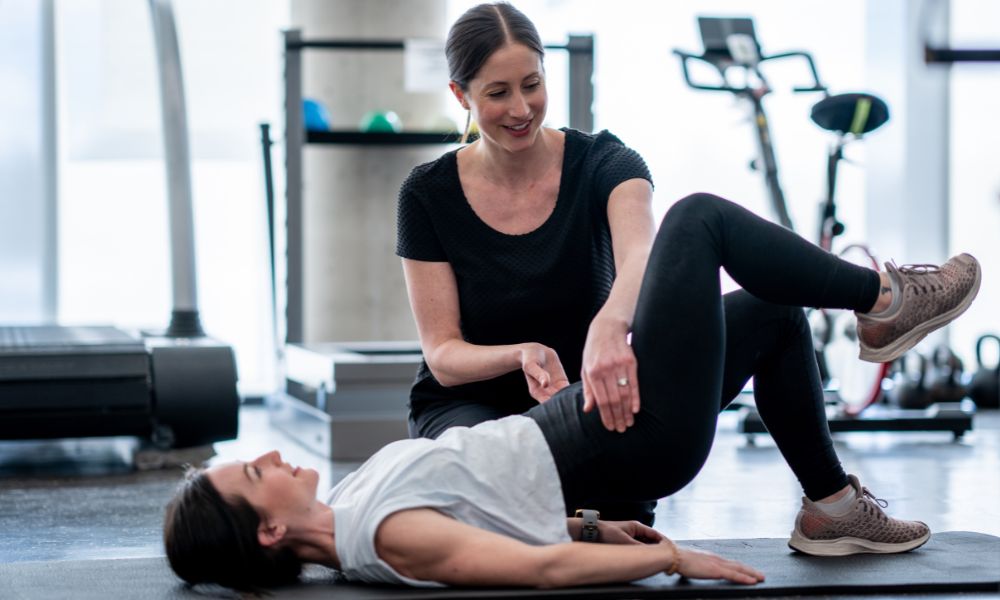March is Colorectal Cancer Awareness Month — a great time to learn more about colorectal cancer (cancer of the colon and rectum) and how it can be prevented or best treated. Colorectal cancer is the second leading cause of cancer-related deaths in the United States for both men and women combined. Approximately 140,000 new cases of colorectal cancer will be diagnosed and 56,000 people will die from the disease this year.
“However, colorectal cancer is a disease that can be prevented by regular screenings, a healthy diet and regular exercise,” explains Dr. Abraham El-Sedfy, a colorectal surgeon at St. Joseph’s Health.
Screening and Early Detection is Key -What Is a Colonoscopy and Why Is It So Important?
A colonoscopy is a colon cancer screening test that allows doctors to examine the inside of your colon (large intestine) for signs of cancer or other problems. Using a long, flexible tube with a light and tiny camera on the end, a doctor, usually a gastroenterologist, looks for abnormal growths called polyps.
Even without symptoms or warning signs, this routine procedure could save your life. Yet, many people put it off, fearing discomfort or embarrassment. The truth? It’s easier than you think, and it could be the most important health decision you ever make.
Dr. El-Sedfy explains, “Colonoscopies are the gold standard for detecting colorectal cancer early. In many cases, we can remove polyps before they turn into cancer, making this test a powerful tool in colorectal cancer prevention.”
When Should You Get a Colonoscopy?
The risk of developing colorectal cancer increases with age. For most adults, regular screenings begin at age 45, according to the colon cancer screening guidelines by the American Cancer Society. However, if you have a family history of colorectal cancer or certain risk factors, your doctor may recommend starting earlier than age 45.
You might need earlier or more frequent screenings if you have:
- A family history of colon cancer or polyps
- Inflammatory bowel disease, like Crohn’s or ulcerative colitis
- A history of radiation therapy to the abdomen
- Lifestyle factors like smoking, obesity, or a diet high in processed meats
Dr. El-Sedfy adds, “We are seeing a rise in colorectal cancer in younger adults, so it’s important to talk to your doctor about screening, especially if you have a family history or concerning symptoms.”
What to Expect Before, During, and After a Colonoscopy
Before the Procedure: Colonoscopy Prep
What part do people worry about most? The prep. However, this is the most vital step of the procedure.
Before a colonoscopy, you’ll need to clean out your colon so doctors get a clear view. There are two key steps involved in this process:
- Adjusting Your Diet: The day before your procedure, you’ll be on a liquid diet. This includes clear broth or bouillon, Jell-O, and clear fluids like apple or white grape juice. It’s important to avoid foods and drinks with red, blue, or purple dyes, as they can be mistaken for blood during the exam.
- Emptying Your Colon: Your doctor will prescribe a prep kit to help clear your bowels. These kits come in different forms including pills, powders or drinkable pre-mixed solutions. They all have a laxative effect and work to completely empty your colon. Plan to stay home once you begin your prep as this requires frequent trips to the restroom. Take this opportunity to catch up on your favorite shows or books.
While this may not be your idea of fun, Dr. El-Sedfy reassures, “The prep can be a little inconvenient, however, newer prep solutions are more tolerable and less unpleasant than they used to be.”
During the Procedure: Painless & Quick
On the day of your colonoscopy, you’ll receive sedation, ensuring you won’t feel a thing. The doctor will insert a thin, flexible tube (colonoscope) into your rectum to examine your colon. The procedure takes approximately 30 minutes to perform, but can take longer if any polyps are found and removed for testing. Colon polyps are fairly common, appearing in about 30% of routine colonoscopies. While most are benign, having them checked is crucial for early detection and prevention of potential issues.
After the Procedure: Fast Recovery
After the procedure, you may wake up feeling a little groggy. You’ll spend another hour or so at the healthcare center to recover. As the sedatives take time to wear off, you’ll need a responsible driver to bring you home. It’s normal to feel fatigued and experience mild cramping, bloating, or gas in the hours following the procedure, but most people return to their normal activities by the next day.
Does a Colonoscopy Hurt? What About Other Screening Options?
One of the biggest myths about screening is that colonoscopies are painful. The truth is that with sedation, most people won’t feel a thing. If you are hesitant about a colonoscopy, there are alternative tests including:
- Stool-based tests (such as Cologuard) – These detect DNA markers for cancer but do not remove polyps. Keep in mind that if the test is abnormal, a colonoscopy will still be necessary.
- Virtual colonoscopy – A CT scan that looks for abnormalities. However, it still requires bowel prep and if the results are abnormal, a colonoscopy will be required.
While these tests can be helpful, Dr. El-Sedfy emphasizes, “Colonoscopy is the only screening that allows us to both detect and remove polyps in one step. It’s truly the best way to prevent colorectal cancer.”
Why You Shouldn’t Wait to Get Screened
Since there are very few symptoms associated with colorectal cancer, regular screening is imperative. Screening is beneficial for two important reasons: colorectal cancer is preventable if precancerous polyps are detected and removed, and it is curable if the cancer is detected in its early stages.
Many people delay colonoscopies due to fear, embarrassment, or the belief that they’re “too young” for colorectal cancer. The statistics tell a different story. According to the American Cancer Society, the lifetime risk of developing colorectal cancer is 1 in 26 for women and 1 in 24 for men.
It is estimated 60% of deaths from colorectal cancer could be prevented if people over 50 years or older were screened regularly. Cases in younger adults are rising, making early detection even more critical. Dr. El-Sedfy notes, “If you’re 45 or older, or have a family history, please don’t wait. A simple test today could save your life tomorrow.”
“Even if detected, colorectal cancer requires surgery in nearly all cases for complete cure, sometimes in conjunction with radiation and chemotherapy,” says Dr. El-Sedfy. “Between 80-90% of patients are restored to normal health if the cancer is detected and treated in the earliest stages. However, the cure rate drops to 50% or less when diagnosed in the later stages.”
Take the Next Step for Your Colon Health
Colorectal cancer is preventable, treatable and beatable, if caught early. A colonoscopy isn’t just a test; it’s a potentially life-saving decision. Talk to your doctor about scheduling your screening today.
Looking for expert colorectal cancer screening? St. Joseph’s Health offers top-rated gastroenterology services and colorectal cancer surgery services. Find a gastroenterologist here to schedule your colonoscopy and take control of your health.







